What is a Postdoc?
Most people outside of academia know what a PhD is, but a postdoc is more confusing. Are postdocs students? Do they actually earn a degree? Are they called postdoctoral researchers or fellows or scholars or associates or assistants? Let’s clear up some of that confusion.
So, What is a Postdoc?
In many fields, a postdoc is the de facto next step on the academic career path after earning a PhD (hence the name.) A postdoc is a temporary position that allows a PhD to continue their training as a researcher and gain skills and experience that will prepare them for their academic career. Most postdoc positions are at a university or in industry, but there some postdocs positions at nonprofits and in government. While the vast majority of postdocs work in STEM fields, these types of positions are becoming more common in social sciences and the humanities.
What Does a Postdoc Do?
A postdoc is primarily a researcher who works under the supervision of a mentor as part of a larger research group. As such, they conduct research, either on a pre-specified project or one of their own design and publish that research. At the same time, a postdoc is meant to prepare young researchers to become principal investigators or junior faculty members, so they also take on senior responsibilities like mentoring, grant writing, and teaching.
How Long Are Postdoc Positions?
There is no set length for a postdoc. It will depend on a number of factors such as the university, country of research, PI, or funding. That being said, most positions are two to three years and some can be extended. It is common to do more than one postdoc before applying for faculty positions. Some countries do limit the total number of years a person can work as a postdoc. For example, in Canada and Sweden, it is only possible to be a postdoc for five years total, while there is no limit on postdoc years in the US.
How Are Postdocs Funded?
Postdoc positions can be funded in several ways. Some postdocs are salaried employees of a university, institution, or company. Other times they are paid a stipend from a grant, fellowship, or scholarship. In some countries, the name of the position indicates the funding source. In the UK for example, a postdoctoral assistant works on a project developed for and funded by a grant awarded to the PI, while a postdoctoral fellow is awarded their own fellowship giving them a larger say in the scope of their project.
Find hundreds of available postdoc positions on Academic Positions.

Discover related jobs
Discover similar employers
Accelerate your academic career
10 Benefits of an Academic Career
There are many compelling reasons to choose a career in academia. Here a...
10 Questions to Ask During a Postdoc Interview
Not sure what to ask during your postdoc interview? Make sure you get th...
How to Write a PhD Elevator Pitch
How many times have you been asked, “What do you research?” only to draw...
10 Tips for First Time Teaching Assistants
Great teachers make teaching seem effortless, but teaching can be hard—e...
Studying in the US on an F-1 Visa
Here's what you need to know as an international PhD student studying in...
UK Academic Job Titles Explained
What's the difference between a Lecturer and a Reader? Here's a breakdow...
Jobs by field
- Artificial Intelligence 162
- Machine Learning 161
- Electrical Engineering 159
- Programming Languages 142
- Molecular Biology 115
- Electronics 97
- Cell Biology 97
- Materials Chemistry 93
- Management 92
- Chemical Engineering 91
Jobs by type
- Postdoc 304
- Assistant / Associate Professor 165
- Professor 131
- Researcher 126
- Research assistant 95
- Lecturer / Senior Lecturer 75
- Management / Leadership 54
- Engineer 51
- Tenure Track 40
Jobs by country
- Belgium 246
- Netherlands 156
- Switzerland 110
- Luxembourg 56
Jobs by employer
- KU Leuven 97
- Mohammed VI Polytechnic Unive... 95
- KTH Royal Institute of Techno... 68
- ETH Zürich 61
- University of Luxembourg 54
- Ghent University 54
- Eindhoven University of Techn... 51
- University of Twente 37
- Manchester Metropolitan Unive... 35
This website uses cookies
What is a Postdoc? Understanding the difference between academic, industry, government and non-profit positions
A postdoc (or "post-doc," "postdoctoral," or "postdoctoral research") fellowship is a training-focused position available to people who have earned a doctorate. Postdoc positions usually act as a stepping-stone between the student experience and the full-time professional experience. For the postdoc appointee, a postdoc position offers in-depth training. For the postdoc institution or organization, a postdoc is a dedicated researcher, with specialized knowledge but flexible to explore other topics, often with lower a financial cost than a permanent employee.
The most common type of postdoc position is a research-focused position at an academic institution, but postdocs also exist in industry, government, non-profit, and other non-academic organizations. Most postdocs are focused on research, but there are also opportunities in specialized areas such as technology transfer and policy at all types of organizations.
Academic postdocs
Academic postdocs tend to be focused on research and the academic experience. A postdoc typically has a higher degree of freedom in determining the direction of their research than a Ph.D. student. Postdocs are often expected to secure grants (as lead principal investigators or collaborators) and teach courses in addition to completing research objectives and publishing results.
Some research groups may offer high-performing Ph.D. students the opportunity to stay at the same institution, even within the same research group. Treat any offer like this carefully! It is an honor to be recognized as such a benefit to the research group, but will you be able to get the training you need if you stay in the same location? Also be aware that many future employers prefer candidates who have taken risks by moving to a new area (mentally, if not physically) and have broadened their area of expertise.
Industry postdocs
Industry postdocs can vary significantly between organizations. Most have a focus on teamwork, while valuing independent thought and development. A postdoc may be viewed as a "stepping stone" position, somewhere between an entry-level position and a higher-value research position... or it could be a distinguished staff scientist position with an opportunity for higher pay. For many organizations, while the postdoc position is a one to two year contract, it can serve as a pathway to a permanent position within the organization. Many industry postdocs offer easier access to state-of-the-art facilities, whereas many academic postdocs only provide access to these facilities through collaborations with other organizations.
Government postdocs
Government postdocs have some similarities with academic and industry postdocs. Like academic positions, there is often an expectation to publish a high number of manuscripts; however, the salary offered may be higher than that of an academic postdoc. There may be fewer opportunities to write external grants, which could be a detriment to any future applications to an academic (especially tenure-track) position. Depending on the organization, there may be fewer opportunities to teach compared to an academic postdoc. Like industry postdocs, government postdocs can act as a stepping stone to a permanent position within the organization and can provide access to state-of-the-art federal facilities.
Non-profit postdocs
Non-profit postdocs can offer a less traditional option with similar benefits to academic postdocs. The focus of a non-profit postdoc can cover any topic, from food scarcity to sports management. There is likely a strong focus on grant writing and collaborative efforts, although possibly fewer opportunities to teach.

Meet some of the ORISE participants who are advancing scientific research and discovery
ORISE administers STEM education programs on behalf of the U.S. Department of Energy and other federal agencies. The diversity of these programs enables individuals—whether undergraduate, graduate, postdoc, or faculty—to conduct collaborative research with national laboratories or at one of DOE's federal agency partners. Learn about how their research experiences have advanced their academic and professional careers.
Read success stories

- Postdocs: The Definitive Guide
- After a PhD
As soon as you step outside the world of academia, the number of people who know what a postdoctorate is, what they involve and how to secure one quickly plummets. Given that a postdoctorate can be a popular option, especially for Science and Technology-related PhD graduates, it’s essential to address this current gap in knowledge.
What Is a Postdoc?
A postdoc is only one of many paths you can take after having completed your PhD. A postdoc (also referred to as a postdoc or postdoctoral) can be best thought as a temporary position designed to refine your research and teaching skills while undertaking practical research work. Because of this, most regard a postdoc position as a temporary stepping stone for developing a career in a more permanent position.
There’s a common misconception that a postdoctorate is an advanced doctoral degree that is undertaken after having completed a PhD. This misconception arises from individuals associating the word “post” in “postdoctorate” with the word “after”. While you will learn a lot during your time in a postdoc position, it is nothing like a degree. There are no fees, coursework, exams or vivas to deliver (thankfully!). A postdoc is, in fact, a job, and as someone in a postdoc position, you will be considered an ‘employee’. And just like any other job, the position will come with its own salary, responsibilities, training and employers.
Most postdocs are awarded by universities or research institutes as temporary contracts. However, they can also be undertaken in private companies, non-profit charities or government bodies.
What Is The Purpose Of A Postdoc?
As mentioned above, the primary purpose of a postdoc is to help bridge the gap between your current skills and your current level of experience. Due to this, postdoctoral positions are popular amongst those who have recently obtained their PhD. This is especially true for individuals who which to pursue a career in academia or research but don’t yet have adequate experience in teaching or publishing.
For the ‘learning’ nature of this role, postdocs provide an excellent option for those to continue their self-development while pursuing research in a field they’re interested in.
What Does a Postdoc Do?
A postdoc works under the supervision of an experienced researcher known as a postdoctoral advisor. What you will do on a day-to-day basis will, therefore, depend on what they require support on at any given time.
While your responsibilities will depend on your postdoctoral advisor, you can expect the following duties as part of your role:
- Contribute to the supervision of PhD students who are undertaking research projects in a closely related field.
- Supporting the research team in managerial tasks related to planning, organisation and administration.
- Undertake research, including but not limited to: qualitative data collection, data analysis and data and lab management.
- Contribute to the production, review and dissemination of academic and non-academic writing, including publications.
Your responsibilities will also depend on who your postdoc position is with. Positions offered by universities will often place a high emphasis on the academic aspects of the role. This involves aspects such as working more independently, developing your supervisory and teaching capabilities, and improving your communication skills through participation in seminars and conferences. In doing so, they’re helping you to become an individual capable of both conducting research and transferring knowledge – in other words, a university lecturer!
The opposite is true for postdoc positions held in industry, such as a private organisation or government body. As you can expect, these roles will place almost all of its emphasis on conducting research and advancing projects forward, with little focus on anything that falls outside of this.
How Long Should I Be A Postdoc For?
There is no set rule for how long you should remain in a postdoc position. Regardless of this, most individuals stay within a postdoc position for between 2 to 4 years. During this period, it’s not uncommon to move between one or two postdoc positions, with one position being abroad for a more rounded experience.
The time you may choose to spend in a given postdoctoral position will depend on several factors. The most influential of these will be:
- The size of the research project’s scope,
- The support needs of the principal investigator/postdoc advisor,
- The amount of funding available.
Although you could undertake a postdoctorate for a year or less, most will advise against this. This is simply because you will likely not have enough time to gain valuable experience associated with producing publications, writing research grant proposals and speaking at conferences. Although it may be possible to complete these within a single year, most researchers will opt for a minimum of two years for a single position. This will provide them with ample opportunity to contribute a significant amount to a project, publish a handful of papers and attend several conferences. On top of this, it will allow you to develop a deeper relationship with the students you help teach or supervise. This will prove invaluable experience should you plan on becoming a university lecturer .
How Are Postdoc Positions Funded?
Postdocs are usually funded in one of three ways:
- The postdoc secures the funding themselves . This can be achieved in several ways, with the most common being applying to opportunities put out by government, research or charity bodies. Examples of these opportunities include the NWO Talent Programme Veni and the Marie Skłodowska-Curie Fellowship . Securing funding under any of these schemes will provide you with a ‘stipend’ (which acts as your salary), and ‘’research funds’ for enabling the project. It’s worth noting that if you secure funding in this way, you won’t typically be restricted to any one university. Although when applying to these opportunities you’ll be required to indicate where you intended to undertake your research, if successful, you can take your funding and associated research project to any university or research institution of your choice.
- A Principal Investigator (PI) secures a research grant for a project, part of which will go towards hiring one or more postdoctoral assistants. In these scenarios, the university will employ you to work on the project they gained funding for.
- A research body hires postdoctoral assistants irrespective of any new funding . In these scenarios, the researching body, who could be anyone from universities to research centres, charities and private organisations, may put aside their own funds to secure a postdoc assistant as a regular salaried employee.
What is the Average Postdoc Salary?
It goes without saying that the average salary for a postdoc will vary from role to role, with factors such as your country, your employer and your level of experience being influential factors.
If working as a university employee, your salary as a postdoc will be determined via a set pay scale known as the “ HE single pay spine “. Under this pay spine, a postdoc can expect to earn an average of £31,000 per year, though, in reality, a postdoc’s salary can range between £29,000 to £34,800.
On the other hand, the stipend (which will act as your postdoc salary) associated with the funding you have secured yourself will directly depend on the opportunity you acquire. Because of the wide range of possibilities, your potential stipend can vary considerably. As well as having a high variance, they also tend to have a higher ceiling compared to the salaries associated with a PI’s research grant or a research body’s employment. For example, the Marie Skłodowska-Curie Fellowship can be worth over £50,000 per year. However, these types of fellowships are not only highly competitive but are also not an entirely fair comparison to postdoc assistant roles. This is due to the fact that a research fellow will be expected to have a greater amount of experience and to assume a higher level of responsibility than a regular postdoctoral researcher.
In case you’re thinking of working abroad, it would be useful to know that the median salary of a postdoctoral researcher in the United States is approximately $42,000 (£33,000 at the time of writing) per year.
Browse PhDs Now
Join thousands of students.
Join thousands of other students and stay up to date with the latest PhD programmes, funding opportunities and advice.
An official website of the United States government
The .gov means it's official. Federal government websites often end in .gov or .mil. Before sharing sensitive information, make sure you're on a federal government site.
The site is secure. The https:// ensures that you are connecting to the official website and that any information you provide is encrypted and transmitted securely.
- Publications
- Account settings
- Browse Titles
NCBI Bookshelf. A service of the National Library of Medicine, National Institutes of Health.
National Academy of Sciences (US), National Academy of Engineering (US), Institute of Medicine (US), Committee on Science, Engineering, and Public Policy. Enhancing the Postdoctoral Experience for Scientists and Engineers: A Guide for Postdoctoral Scholars, Advisers, Institutions, Funding Organizations, and Disciplinary Societies. Washington (DC): National Academies Press (US); 2000.
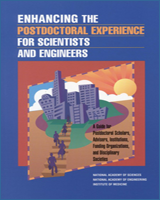
Enhancing the Postdoctoral Experience for Scientists and Engineers: A Guide for Postdoctoral Scholars, Advisers, Institutions, Funding Organizations, and Disciplinary Societies.
- Hardcopy Version at National Academies Press
3 Rights, Opportunities, and Responsibilities of the Postdoc
The fundamental purpose of a postdoctoral experience is to extend and deepen the postdoc’s scientific and technical abilities, either in the field of the doctorate or a different field. Because postdoctoral positions seldom require administrative or teaching duties, they provide unique opportunity for researchers to demonstrate originality, creativity, and productivity that will be primary contributors to their future success in research. In particular, postdocs have the opportunity to produce the lead or single author publications by whose quantity and quality they will be judged as they compete for their next professional position.
Responsibility for the postdoctoral experience is shared among the postdoc, adviser, institution, funding organization, and disciplinary societies. This chapter examines the rights, opportunities, and responsibilities of the postdoc, and the importance of postdoctoral activities in shaping a career.
- Rights of a Postdoc
When an adviser and institution accept a postdoc, that postdoc rightfully expects an experience that provides good training, education, and career enhancement. The following topics were discussed extensively by postdocs and advisers during COSEPUP’s focus groups and workshop in an attempt to determine “best practices.”
Clear terms of appointment
Practice description defining the postdoctoral position.
- The appointee has received a PhD or doctorate equivalent. 2
- The appointment is viewed as an apprenticeship—a training or transitional period preparatory to a long-term academic, industrial, governmental, or other full-time research career.
- The appointment involves full-time research or scholarship. 3
- The appointment is temporary.
- The appointee is expected to publish (and receive credit for) the results of research or other activities performed during the period of the appointment.
This definition draws on criteria suggested by the American Association of Universities (AAU, Committee on Postdoctoral Education, Report and Recommendations , Washington, DC, March 31, 1998) and by Vanderbilt University School of Medicine (presented by Roger Chalkey at COSEPUP’s December 1999 workshop on the postdoctoral experience).
E.g., the MD, DDS, DVM, or other professional degrees in science and engineering.
However, in some disciplines, such as mathematics, the postdoctoral experience commonly includes a major teaching element. Also, some postdoctoral experiences, such as the National Academies’ and AAAS Fellowships, introduce the postdoc to the field of public policy.
Once the postdoc is accepted, an appointment letter or contract should state the basic contractual framework, especially the stipend level, source of stipend, what benefits will or will not be provided (particularly medical), and for how long the grant that supports the postdoc is to be funded. (See Box, Appointment Letters .)
Practice Description Preparing for a Postdoctoral Position
The factors that determine a “good” postdoctoral experience are as various as the personalities involved. But certain key steps deserve careful planning.
Choosing a field . Foremost is the selection of the research area. A postdoctoral research project should be more than an extension of thesis research; it should lead to new skills and a broader outlook. The postdoc should understand in advance what portion of the work is likely to be transportable to his or her next position.
Finding a postdoctoral position . Most postdocs in our focus groups 4 found their positions through personal contacts—advisers, friends, and contacts from professional meetings. Many simply approached potential advisers directly with their qualifications and objectives. Few postdocs are hired after a simple response to ads in journals and on web sites, but such sources provide valuable tips about which institutions are hiring in which fields.
Choosing an adviser . Both experienced postdocs and advisers suggest a thorough investigation before signing on. Some postdocs place paramount importance on the prestige of the principal investigator; others emphasize mentoring ability. A researcher of renown has great power to help—or hinder—a career; a newer assistant professor may offer more attention, responsibilities, and a substantial role in building up a lab. In either case, it is desirable to: 1) arrange a personal meeting and 2) talk with current and former postdocs who have worked with that investigator or organization.
Several hundred postdocs, faculty, advisers, administrators, and federal agency staff generously offered their opinions, critiques, and personal experiences at 39 focus groups held around the country.
Higher compensation
Best practices questions to ask in choosing an adviser.
- What are the adviser’s expectations of the postdoc?
- Will the adviser or the postdoc determine the research program?
- How many postdocs has this adviser had? Where did they go afterward?
- What do current and past lab members think about their experience?
- Will the adviser have time for mentoring? Or should I seek out other mentors?
- How many others (grad students, staff, postdocs) now work for this adviser?
- How many papers are being published? Where?
- What is the adviser’s policy on travel to meetings? Authorship? Ownership of ideas?
- Will I have practice in grant writing? Teaching/mentoring? Oral presentations? Review of manuscripts?
- Can I expect to take part of the project away after the postdoc?
- How long is financial support guaranteed? On what does renewal depend?
- Can I count on help in finding a position?
- Will the adviser have adequate research funds to support the proposed research?
Best Practices Appointment Letters
By tradition, postdocs have often been invited to work in a researcher’s lab with no more formality than a phone call or a handshake. Institutions are now beginning the good practice of issuing a formal letter of appointment that contains important contractual elements. The following model is offered to faculty by the postdoctoral office of one university:
Initial Letter of Appointment Outline
- Offer of postdoctoral position, with brief explanation of research project.
- Effective date of appointment, amount of stipend, source (and expiration date) of funding, and payroll information.
- Length of appointment (e.g., annual, with reappointment contingent on satisfactory performance).
- Leave policy.
- Copy of institutional policies attached with letter.
- Health insurance information and requirements and a description of the other benefits provided and (equally important for the postdoc to know) not provided.
- Intellectual property policy and agreement (enclosed for signature).
- Work eligibility requirements for US citizens and foreign nationals.
- Request for proof of doctoral degree (diploma or registrar statement).
- Request for candidate’s signature and return of letter by given date.
In return for working on the adviser’s project and with low monetary compensation, the postdoc has the right to expect good mentoring: oversight, feedback, sympathetic consultation, and periodic evaluations. There should be opportunities to present posters and papers and to learn manuscript writing and grant proposal writing. The mentor-trainee relationship can be crucial in helping the postdoc understand the context of his or her research and the requirements of a career focused on advanced research.
The postdoc shares responsibility for making this relationship work, and should understand the multiple demands on the adviser’s time. Like any personal relationship, the success of mentoring depends on good will and clear communication by both parties.
Practice Description Postdoctoral Stipends
Many postdocs, especially in the life sciences, are dissatisfied with the package of compensation and benefits they receive. Stipends vary by a factor of two or more among institutions, some of which have now begun to experiment with more equitable formulas.
The NIH , because of its dominance in providing support for postdocs, sets a widely used standard with its National Research Service Award (NRSA) scale, whose stipends begin at $26,256 and peak at $41,268 after seven or more years of experience. The scale is not intended to be a model for others, but it has become a de facto benchmark for many institutions and funding organizations.
Amid complaints that the NIH scale is unfairly low for experienced researchers, a number of institutions have designed their own standards. The University of Iowa , for example, decided to set the salaries of postdocs paid from research grants at twice the graduate student stipend, partly on the basis that postdocs spend all their time on research and a student spends half time. This computes to a salary in the mid-to-upper 30s, and is accompanied by full benefits (except retirement and vacation accrual, which the university plans to include in the future).
The National Institute of Standards and Technology has decided on the standard of the average salary of a land-grant-university assistant professor—now about $50,000—plus $5,500 in travel allowance.
Other institutions have adopted different formulas to supplement stipends that are deemed insufficient. At the Massachusetts Institute of Technology , for example, the physics department brings any postdoc stipend up to a minimum of $32,000 to compensate for the cost of living in the Boston area.
The compensation issue has evoked the suggestion that stipends should be increased even if it means reducing the number of postdocs. Officials at the University of Notre Dame adopted this strategy for graduate students at the beginning of the 1990s on the premise that “getting better students was more important than getting more students.” They increased the undergraduate GPA and total general GRE scores of the graduate students accepted. It was not clear that the strategy reduced the number of applicants accepted, between 1992 and 1999.
It is clear that postdoc compensation is low relative to the compensation of others with comparable skills and education. Postdocs are also entitled to non-monetary forms of compensation, specifically, to guidance in furthering research and other career skills and in advancing a professional career. For many, these forms of compensation are necessary to a successful postdoctoral experience. Those who do not feel the need for guidance (e.g., people who have been post-docs for five or more years and function essentially independently believe they are already “junior colleagues” of their adviser) often express the greatest displeasure over low stipend levels. (For further discussion of compensation issues, see Levels of Funding in Chapter 6 .)
COSEPUP Survey Results Does Your Organization Establish Minimum and/or Maximum Stipend Levels for Postdocs? If “Yes,” Please Specify Dollar Values. If “No,” Why Not?
Slightly more than half the organizations answered “yes.” Among universities, minimum levels tended to follow the NIH scale (now $26,256 for the first year); a few were lower. At national laboratories and facilities, most salaries began in the $40,000–50,000 range, with lows between $30,000 and $40,000 and a high of $80,000. Some national labs offered “add-on” amounts for “critical skills,” from $2,000 to $10,000. In industry, stipends beginning between $30,000 and $40,000 were common.
For “no” responses, institutions listed a range of ambiguities that inhibited the establishment of uniform stipend levels, including the wide variety of job titles and policy differences among departments, schools, or laboratories. Several institutions reported that policies were being prepared.
Multiple mentors
Some advisers who are excellent researchers may have insufficient time or ability to be good mentors. For this reason, several institutions encourage and even require postdocs to seek out multiple mentors or “mentoring committees.” The purpose of such committees is not to alter the authority of the PI, but to provide additional perspective and feedback from experienced colleagues. In a broader sense, postdocs can benefit from a diverse community of mentors (representing a range of skills and experience), ranging from peers in the lab to senior investigators in other fields.
Health benefits
Postdocs who are categorized as employees usually have access to insurance and other institutional benefits, such as dental insurance, short-term leave, life insurance, and retirement funds. Problems arise, however, among postdocs who bring their own fellowships, which may or may not include health coverage. This problem is especially troublesome for postdocs with families. Some institutions are setting an example by requiring and/or providing universal access to health insurance for postdocs.
Support in planning a career and finding a job
A postdoc who focuses solely on research may neglect essential steps of career planning. These include acquiring technical and careers skills that will be needed for desired positions, preparing for the next grant or position, publishing results, and building a professional network. Both the adviser and the institution should be sources of assistance in all these areas.
Best Practices Is a ‘Hot Lab’ the Best Lab?
Many graduate students and pre-graduate students assume that a “hot topic” lab is the best lab for postdoctoral work, but hot researchers may or may not provide good mentoring. An indication of effective mentoring may be found in the published record. One mentor advises looking back 10 to 20 years in a major literature database (e.g., Medline for postdocs on the life sciences) and selecting first authors of excellent papers from the lab of the proposed mentor (in most biomedical labs the mentor is the last author). Then fast-forward to the most recent three years and check for citations from the first list of names, especially as first or last author. If the collective first authors of earlier years are producing first-rate, interesting papers today, their previous training may have played an important part. This method is helpful only for evaluating senior mentors; however, for more junior mentors, the best information may come from current and former lab members.
- Opportunities of Postdoctoral Experience
A postdoc is emerging from the world of students to the broader world of professional research. A postdoctoral apprenticeship offers numerous opportunities to make this transition.
Independence
In graduate school, it is common (though not universally so) for students to work within the structure of the adviser’s research program. Many, but not all postdocs work toward greater autonomy and self-direction. Especially in universities and smaller labs outside academia, the goal of the postdoctoral experience may be to become an independent researcher capable of every step of professional research: designing research programs, publishing as senior author, finding grant support for research, and supervising others. These postdocs may have the responsibility for a clearly defined program and work under the supervision of a single adviser. In other kinds of facilities, especially those of industry and government, postdocs may work in teams of dozens or even several hundred researchers. The goal here may not be to achieve independence in a literal sense, but to mature into interactive and effective team members.
Best Source of Job Advice for Postdoctorates: Biochemistry & Mathematics. Source: Science , 1999, Vol. 285, pp. 1518.
Professional meetings
Most postdocs are aware of the importance of attending professional meetings to network, to present the results of research, and to gain experience in the larger research community. Many postdocs, however, must depend for travel funds on their advisers, whose travel policies vary. Some advisers encourage postdocs to attend meetings; others are reluctant to provide travel funds or allow time for extramural activities. Most postdocs feel the need to attend a minimum of one national meeting a year, preferably two. NIH policy, for example, is to support the travel of its on-campus trainees to one meeting a year, with the opportunity for additional competitive travel awards.
Professional meetings provide excellent opportunities to meet colleagues and build a professional network of students, other postdocs, and senior researchers. Research communities are relatively small, and meeting one’s peers can have lasting importance in finding collaborators for joint projects and contacts who may lead to rewarding employment. For example, the American Chemical Society estimates that 75–85 percent of its members find their jobs through networking. 8 Networking is a process where “more is better,” because meeting the right person is often a matter of serendipity.
- Responsibilities of a Postdoc
Postdocs have dual responsibilities: They must acquire the experiences they need to advance their careers and contribute to the program of their adviser through research accomplishments and interaction with others. Meeting both objectives is most likely when the adviser and postdoc communicate well and share similar expectations.
Career development
Postdocs (with the support of their advisers) must take ownership of their professional development. They need to learn not only the use of new research tools, but also ways to access special resources (such as national and international labs, centers, and multi-user facilities) and to keep up with the exploding streams of scientific communication.
The chances for a satisfying career can be increased through regular attendance at seminars, “getting known” through publications and meeting attendance, course work related to the area of research, integrating research into teaching experiences, developing possible collaborations, and developing skills in grant writing, reviewing, and oral and written communication. This “continuing education” can increase versatility and the chance for a rewarding career.
Intrinsic to “taking ownership” of a career is the element of taking control, of making and seizing opportunities. Timidity is not productive. Rather than waiting for invitations or instructions, successful postdocs ask for what they need, find their own new resources, meet new people, and solicit invitations to speak about their work. Developing a proactive mindset hastens the journey from student to professional. Not all advisers will welcome such initiatives. Their negative reactions can often be ameliorated by improved communication. In very difficult situations, the postdoc may need to consider an alternative situation.
Communicating
Good communication is an essential responsibility of both postdoc and adviser. Postdocs must clearly articulate the skills or training they need; advisers must clearly explain the needs of the laboratory or institution. These needs are most likely to be met if the postdoc steps forward with questions and if the adviser takes the time to listen. The postdoc must also communicate with the institution when help is required.
Contributing to the institution
The more postdocs are able to support the program of their adviser, the greater their value as team members. This can lead to a richer research experience, the respect of other group members, and support in developing a career in the future. In addition to getting the work done, good practices include keeping up with the latest advances, communicating them to others (including the adviser), and interacting regularly with others in both the group and the institution. Expectations about the postdoc’s contributions to the immediate community should be discussed carefully with the adviser and other lab members.
Planning for departure
Departure should not be delayed without good reason; the postdoc should neither be pressured to work indefinitely for the adviser, nor become overly comfortable in what should be a finite apprenticeship. If success in the research has proved elusive, the postdoc may be tempted to extend the stay, even indefinitely. This is not always a wise course. These and related issues should be discussed openly between postdoc and adviser from the beginning of the appointment: When should the planning process begin? What are the obligations of adviser and postdoc during and after leaving? Who inherits intellectual property rights—and the project itself—at the point of separation? A good rule of thumb is that the postdoc should begin a systematic job search at least a year before the end of his or her term. In reality, of course, timing is often determined by a job offer. But expectations about departure should be broached and discussed both upon arrival and during periodic evaluations.
- Shaping a Career
Academia, government, or the private sector?
The postdoctoral tradition began in universities. Many faculty still place the highest value on careers in academia, and assume that their postdocs will follow them there.
Nonacademic careers, however, are both more common and more acceptable than in the past. In some fields (such as biotechnology, computer science, and electrical engineering), postdocs value nonacademic positions as highly as academic jobs. Even so, many postdocs lack up-to-date information about research careers. In a 1999 survey of junior scientists at the University of California at Berkeley, 55 percent of respondents said their advisers encouraged them to pursue academic jobs, but fewer than 1 percent were advised to obtain positions in industry, government, or the non-profit sector. 9 A second 1999 survey of post-docs at Berkeley indicated that the number anticipating careers as “a professor with an emphasis on research” had dropped from 69 to 59 percent since the beginning of their postdoctoral experience. Instead, they cited the goals of “research in industry or national lab,” “consultant,” or “start their own company.” The leading reasons given for this change were “difficulty obtaining an academic job” and “money.” 10
The first Berkeley survey noted a wide difference in salaries for academic and nonacademic positions. About half of the cohort of biochemists who earned PhDs in 1982–1985 were working outside academia in 1995. This group earned almost $22,000 more in median annual total salary (including all income sources) than those employed in the academic sector, where the median salary was $57,000.
Developing career skills
Once a postdoc can see the outline of a career, gaining the right skills can be the key to expanding choices and finding the right position. These skills include such general abilities as clear writing, public speaking, leadership, teamwork, teaching, and mentoring. Given the competition for research positions, experience in teaching can be a strong advantage, especially for academic employment. Teaching experience also prepares the postdoc to communicate with people who work outside research or specialize in other fields.
Job hunting
The job search usually begins with help from the adviser, whose professional contacts are invaluable. However, postdocs should also develop their own network of contacts. One adviser suggests: “Let your presence be known in the field; be as public as you can. Departmental meetings, professional meetings—take advantage of those ten minutes in the sun.” The search must be tailored to the desired sector. For example, teaching experience will be more valuable in an academic setting; an industry employer is likely to require evidence of good communication and team skills.
Career expectations and reality
The 1998 AAU study reported that two-thirds of postdocs expected to find a tenure-track position at a research university, but that only about one-fourth of “recent postdocs” had done so. (An additional one-fourth went to another postdoc and 10 percent went to non-tenure-track (but somewhat more regular than a postdoc) positions such as fellow, research assistant, and adjunct instructor.) A 10-year follow-up study of 23 PhD graduates from the 1987 class of the M.D. Anderson Cancer Center in Houston showed similar results. Sixteen had permanent jobs, but only 10 were in research, with only five of those in tenure-track positions. Seven were still in postdoc positions a decade later. 11
Summary Points
Postdocs should have the opportunity to enhance their research experience, become independent researchers, become known through publishing and presenting their results at professional meetings, and advance their careers by networking with colleagues.
They have the right to clear terms of appointment, appropriate compensation and benefits, serious mentoring, and support in career planning and finding a regular position.
Postdocs have dual responsibilities: 1) to acquire the experiences they need to advance their careers, and 2) to contribute to the program through research accomplishments, personal growth, and interaction with others.
Postdocs share the responsibility with their adviser of communicating well regarding their progress and expectations.
In planning careers, more postdocs are finding opportunities in non-academic positions, but they must take the initiative to learn about acquiring the skills needed to qualify for entrance to growing employment areas, often outside their specialty.
Some women postdocs face special problems because of their gender, and have great difficulty in taking time to start a family.
Gaining the right skills can make a large difference in finding rewarding positions and expanding career choices. These include general abilities such as clear writing, public speaking, leadership, team-work, computer skills, teaching, and mentoring.
Profile A Successful Postdoctoral Experience
The elements of a successful postdoctoral appointment are as variable as the postdoctoral population. For one unabashedly upbeat postdoc on a laboratory fellowship (we’ll call her Sue), these elements included early preparation, supportive colleagues, a fascinating research topic, the opportunity to learn time management and self-reliance, and an effective—though somewhat distant—mentor.
- Early preparation : Even as a graduate student in geochemistry, Sue began building ties to the research group where she wanted to go as a postdoc. “To get the most out of an experience, you have to offer something. I did my graduate work in geochemistry; I wanted to work with a group in planetary physics, and I was able to show them that I had something to contribute. I began doing some projects with them while I was in graduate school, so the transition was relatively smooth. One of the best reasons to do a postdoc is to learn a new field, but it’s best to prepare the ground early.”
- Supportive colleagues : “I didn’t always know where I was going, but it was fairly easy to seek out good advice and constructive criticism both in my own institution and elsewhere. A big challenge, and a difference from graduate school, is that you’ve got to start putting together your own professional network of collaborators and friends with whom you’re going to be building your career. It’s a good habit to spend time every week meeting new people, networking, looking at people who are successful to see how they do it.”
- A topic of interest : “I loved my work, and this is one reason it was successful. I published 12 or 13 papers during three years as a postdoc, including one in Science. I got to work on a variety of problems without getting stuck in something too narrow. I was fortunate enough to have a great deal of freedom. I could follow my curiosity, and that allowed me to be very productive. I had the opportunity to propose my own research and get it funded.”
- Learning self-reliance : “I spun my wheels for the first few months, trying to figure out what to do first, but there were some advantages to that experience. If you’re going to be an independent researcher, sooner or later you’ve got to learn to fly the plane. When I was a grad student, I used to do all my own instrument work, because my time was cheap and there wasn’t anyone else to do it. When I became a postdoc, I was paid more and I had technical staff. I had a big adjustment in mindset about organizing better and making the wisest investments of my time.”
- Effective mentoring : “I saw my adviser several times a week. He wasn’t very involved with my research, but what he did was right for me. He was always supportive, gave me a long leash, and made sure I got to give talks at important conferences. He did this for all his postdocs—made sure that certain doors were unlocked. What you do with that advantage, once you go in that door, is your business. Again, you’re the one who’s going to fly the plane. In the end, I was fortunate enough to be hired by the same institution where I did my postdoc.”
Profile A Difficult Postdoctoral Experience
- Know when to cut your losses : In his first year, Joe tried several experimental approaches that failed to give results. His adviser was seldom in the lab to offer guidance, and Joe was slow to change direction. When he tried to consult other senior scientists, his adviser refused to allow it. “She felt this was interfering with her laboratory. In retrospect, I probably should have cut my losses and moved on. But there’s great pressure to keep going, to tough it out.”
- Understand your adviser’s policy on publication : In his third year, Joe had finally found a promising new direction, obtained results, and written them up for publication. His adviser, however, did not allow him to send out the paper because she felt it should be a “bigger story.” “The timing was critical for me. I had to be applying for jobs, and I had no publications. I was ready to have my work judged by my peers, and I was unable to do so. She finally rewrote and published the paper—after I’d left the lab.”
- Talk with former lab members before signing on : Joe talked only with current lab members, who he now knows are not in a position to be critical. Later he learned that he was the fifth postdoc to leave that particular lab without publications or jobs. “I should have talked with some former members, because they are freer to be honest. In a good training environment, postdocs are getting jobs and continuing their research. I might have saved myself a lot of difficulty.”
- Be clear about your agenda : He went on to do a second postdoc, with better—defined goals. “I needed publications, and I was frank about this with my second adviser. That lab was doing work in my field. I was offered a year’s support, and after that I knew I would be on my own. It was a fair offer, and clear. After nine months I was able to raise my own funding. I got my publications, the work came out well, and I entered the job market in good shape.”
NSF Issue Brief , December 2, 1998.
Numerous universities and some other institutions where COSEPUP held focus groups cited the NRSA scale in describing their mechanisms for setting postdoc stipends/salaries.
Nerad, M. and Cerny, J. “Postdoctoral patterns, career advancement, and problems,” Science , 1999, Vol. 285: pp. 1533–5. [ PubMed : 10477510 ]
As discussed in the Disciplinary Society Workshop sponsored by COSEPUP and held at the National Academy of Sciences, Washington, DC, January 10, 2000.
Nerad, M. and Cerny, J. PhDs–Ten Years Later , a national study funded by the Mellon Foundation, 1999, with selected analysis funded by the NSF. A report on the study has been published in Science (cited above).
McPheron, L. and Nerad, M. “Results of a Survey of Postdoctoral Appointees at UC Berkeley,” University of California at Berkeley ([email protected]), 1999.
Bunk, S. The Scientist , 1998, Vol.12, 1, p.1.
- Cite this Page National Academy of Sciences (US), National Academy of Engineering (US), Institute of Medicine (US), Committee on Science, Engineering, and Public Policy. Enhancing the Postdoctoral Experience for Scientists and Engineers: A Guide for Postdoctoral Scholars, Advisers, Institutions, Funding Organizations, and Disciplinary Societies. Washington (DC): National Academies Press (US); 2000. 3, Rights, Opportunities, and Responsibilities of the Postdoc.
- PDF version of this title (1.8M)
In this Page
Other titles in this collection.
- The National Academies Collection: Reports funded by National Institutes of Health
Recent Activity
- Rights, Opportunities, and Responsibilities of the Postdoc - Enhancing the Postd... Rights, Opportunities, and Responsibilities of the Postdoc - Enhancing the Postdoctoral Experience for Scientists and Engineers
Your browsing activity is empty.
Activity recording is turned off.
Turn recording back on
Connect with NLM
National Library of Medicine 8600 Rockville Pike Bethesda, MD 20894
Web Policies FOIA HHS Vulnerability Disclosure
Help Accessibility Careers
Thank you for visiting nature.com. You are using a browser version with limited support for CSS. To obtain the best experience, we recommend you use a more up to date browser (or turn off compatibility mode in Internet Explorer). In the meantime, to ensure continued support, we are displaying the site without styles and JavaScript.
- View all journals
- Explore content
- About the journal
- Publish with us
- Sign up for alerts
- 25 April 2024
NIH pay rise for postdocs and PhD students could have US ripple effect
- Amanda Heidt 0
Amanda Heidt is a freelance journalist in southeastern Utah.
You can also search for this author in PubMed Google Scholar

Academic workers on a picket line at the University of California, Los Angeles. Credit: Gary Coronado/Los Angeles Times via Getty
Amid a reckoning over poor job prospects and stagnating wages for early-career scientists, the US National Institutes of Health (NIH) said this week that it will raise the salaries of thousands of postdoctoral researchers and graduate students who receive a prestigious NIH research fellowship. The move could boost pay for other scientists as well, because academic institutions often follow guidelines set by the NIH.
Beginning immediately, postdocs who hold one of the agency’s Ruth L. Kirschstein National Research Service Awards (NRSAs) will earn at least US$61,008 per year — an 8% increase and the largest year-over-year increase the NIH has implemented since 2017. Postdocs’ salaries, which are adjusted for years of experience, are capped at $74,088 per year. Graduate students’ yearly salaries will rise by $1,000, amounting to an annual salary of $28,224. The agency will also provide an extra $500 in subsidies for childcare and $200 for training-related expenses.
“This is a major step in the right direction and something that the majority will agree is widely needed to retain talent in the biomedical and academic research sectors,” says Francisca Acosta, a biomedical engineer and postdoc at the University of Texas Health Science Center at San Antonio, who is herself funded through an NRSA.
Postdoc shortage
In 2022, the agency assembled a working group to advise it on how best to retain and cultivate postdoctoral talent , after reports that principal investigators were struggling to fill vacant postdoc positions . In December last year, the panel recommended a minimum salary of $70,000 for postdocs.
The NIH agreed that a salary increase is indeed needed for the more than 17,000 trainees covered by the NRSAs. But in its announcement, the agency acknowledged that the pay rise it has implemented falls short of the council’s recommendation. It cited its tight budget in recent years as a reason.

Canadian science gets biggest boost to PhD and postdoc pay in 20 years
It added that “pending the availability of funds through future appropriations”, the agency would increase salaries to meet the recommended $70,000 target in the next three to five years.
The agency also suggested that NIH-funded institutions could supplement salaries in other ways. That presents a challenge, according to Sharona Gordon, a biophysicist at the University of Washington in Seattle, given that the NIH’s modular R01 grants — one of the main NIH research awards with which principal investigators fund their labs — have remained at $250,000 per year since they were introduced in 1998. Such grants cannot be used to supplement salaries, meaning that lab heads have to pull money from other sources to increase trainees’ pay.
Even scientists who approve of the NIH’s move say it could have unintended consequences. “For institutions such as ours, which mandate that the postdoc minimum salary be set to the NIH minimum, there are some concerns that this increase in personnel costs could be a barrier for labs based on funding levels,” Acosta says.
For some, the five-year timeline for the increase feels insufficient. Haroon Popal, a cognitive-science postdoc at the University of Maryland in College Park whose work is funded by the NIH, says that although he understands the pressures on the agency, the new salary will not be enough to support him as he assumes multiple caring responsibilities. Even with the boost, postdoc salaries in academia fall far short of what researchers could make in government, industry or non-profit positions.
“This is an issue of diversity and equity for me,” he says. “The new postdoc salary is not allowing people like me to be in academia, which is counter to the NIH’s, institutions’ and our scientific community’s goals of increased diversity.”
doi: https://doi.org/10.1038/d41586-024-01242-x
Reprints and permissions
Related Articles

- Scientific community

How to meet Africa’s grand challenges with African know-how
World View 01 MAY 24

Support communities that will lose out in the energy transition
Editorial 01 MAY 24
Climate-targets group should rescind its endorsement of carbon offsets
Correspondence 30 APR 24

This social sciences hub galvanized India’s dynamic growth. Can it survive?
News 30 APR 24

News 17 APR 24

How India can become a science powerhouse
Editorial 16 APR 24

US National Academies report outlines barriers and solutions for scientist carers
Career News 02 MAY 24

My PI yelled at me and I’m devastated. What do I do?
Career Feature 02 MAY 24

How I’m supporting other researchers who have moved to Lithuania
Spotlight 01 MAY 24
Silver Endowed Chair (Developmental Psychiatry)(Open Rank Faculty)
The Robert A. Silver Endowed Chair in Developmental Neurobiology leads an internationally recognized, competitively funded research program...
Tampa, Florida
University of South Florida - Department of Psychiatry & Behavioral Neurosciences
W2 Professorship with tenure track to W3 in Animal Husbandry (f/m/d)
The Faculty of Agricultural Sciences at the University of Göttingen invites applications for a temporary professorship with civil servant status (g...
Göttingen (Stadt), Niedersachsen (DE)
Georg-August-Universität Göttingen
Postdoctoral Associate- Cardiovascular Research
Houston, Texas (US)
Baylor College of Medicine (BCM)
Faculty Positions & Postdocs at Institute of Physics (IOP), Chinese Academy of Sciences
IOP is the leading research institute in China in condensed matter physics and related fields. Through the steadfast efforts of generations of scie...
Beijing, China
Institute of Physics (IOP), Chinese Academy of Sciences (CAS)
Director, NLM
Vacancy Announcement Department of Health and Human Services National Institutes of Health DIRECTOR, NATIONAL LIBRARY OF MEDICINE THE POSITION:...
Bethesda, Maryland
National Library of Medicine - Office of the Director
Sign up for the Nature Briefing newsletter — what matters in science, free to your inbox daily.
Quick links
- Explore articles by subject
- Guide to authors
- Editorial policies
/images/cornell/logo35pt_cornell_white.svg" alt="post doctoral and phd"> Cornell University --> Graduate School
Find a postdoc position.
A postdoc is a person who has received a doctoral degree and is pursuing additional research, training, or teaching to have better skills to pursue a career in academia, research, or other fields. Postdocs work closely with a faculty mentor. Postdocs play a crucial role in the university; they supplement the research expertise of faculty by sharing new techniques, collaborating with other institutions, and helping to manage the daily operations of a laboratory or research site. They also contribute teaching and advising support to undergraduate and graduate students.
Consider your long-term goals and why you want to do a postdoc:
- Do you want to stay in academia or are you looking at industry?
- Do you want to focus on teaching, research, or a combination of both?
- Are you getting a postdoc to learn new skills?
- Are you getting a postdoc to publish?
- Are you getting a postdoc to develop better teaching skills?
- Are you getting a postdoc to further develop your existing skills?
Prepare for the job search:
- Develop your CV. You need a strong CV to get a position, so get help writing it from a career counselor in your college or in Career Services in Barnes Hall. This is a very important document, which you will keep updating for the rest of your career.
- Do mock interviews. Work on your interviewing skills and develop your job talk.
- Ask your advisor and other faculty members to be your references. Letters of recommendation are a key part of the application process. You need strong references who know you well. Give each reference an updated copy of your CV.
- Network. Let everyone know that you are looking for a postdoc.
For details, go to Resumes and CVs .
Talk with your advisor and others to identify universities/labs:
Once you know what you hope to accomplish during a postdoc and have made a list of prospective labs, talk to your advisor and other faculty members to shorten this list. Also, talk with postdocs in your department to get their opinions.
Investigate the labs/PIs and university:
Check out the lab’s most recent publications and the lab’s website. Find out the record of past postdocs/grad students in the lab. Talk with current and former postdocs/grad students about their experiences there, as well as where they are now. Choosing the right PI is vital to your future career. Consider:
- Is the PI well connected?
- Does the PI have tenure?
- Does the PI have a solid record in getting grants?
- Does the PI have a solid record publishing?
Check the university salary and benefit package for postdocs; call the Postdoc Office if they have one. Find out if they offer:
- health benefits for postdocs and their families
- retirement benefit
- career counseling
- housing (can be essential in a large city)
Start applying:
Send out your CV and cover letter to the labs you are interested in. If you do not get a reply within a month, follow up with an email. Conferences are a great place to meet PIs and network; so before the conference, contact the PI/labs to schedule an informational meeting.
- Before an interview, prepare and practice your presentation.
- Make your presentation distinctive, interesting, and understandable.
- Research the universities where you will be interviewing so you can ask informed questions.
- During the interview, ask questions to make sure this is the right position for you.
- Talk to other postdocs and grad students in the lab.
- Send thank you notes after each interview.
For details, go to Interviews .
Making the decision:
By now you should have a good idea of each lab you applied to, and which is the best place for your research. Once you make a decision you need to stay with it, so think carefully before accepting an offer.
For details, go to Evaluate Offers .
For more information, contact Director of Postdoctoral Studies Christine Holmes ( [email protected] ).
- Precepting at YSN
- Event Calendar
Post-Doctoral Research
Yale school of nursing and yale university offer several post-doctoral fellowships that provide nurses the opportunity to gain mentored training in the development of independent programs of research..
Fellows participate in coursework, research seminars, faculty-sponsored and independent research, and national/international conferences. Mentoring in grantsmanship and dissemination of research are integral components of these training programs.
Current Post-Doctoral Training Programs
The National Clinician Scholars Program
The National Clinician Scholars Program is a 2-year interprofessional fellowship for physicians and doctorally prepared nurses designed to prepare future clinician leaders. Scholars gain research and leadership skills to change health policy and health care. Applications for the next cohort (starting July 2021) will be due in July of 2020. More information on the National Clinician Scholars Program.
YSN PhD graduate who is a NCSP Alum:
Shelli Feder, PhD , APRN, FNP-BC, ACHPN
YSN PhD graduates who are current NCSP Scholars:
Jose Gutierrez , PhD, FNP-BC
Abigail Wilpers , PhD, WHNP-BC
Yale School of Public Health Post-Doctoral Training in Cancer Prevention and Control
This multidisciplinary fellowship will train post-doctoral fellows in cancer etiology, cancer outcomes, lifestyle behavioral interventions, implementation science, and community-engaged research. Applications are due August 9, 2021. More information at: https://apply.interfolio.com/77888
Yale Center for Implementation Science
This multidisciplinary fellowship trains junior faculty and post-doctoral fellows in dissemination and implementation science. More information at: https://medicine.yale.edu/ycis/scholars/about/
Yale Center for Clinical Investigation Multi-disciplinary Post-doctoral Training
This multidisciplinary post-doctoral training program trains scholars from medicine, nursing, public health, biomedical engineering, statistics and data science, computer science, and applied mathematics in clinical and translational research for up to 2 years. https://medicine.yale.edu/ycci/education/internshipaddprograms/postdoc/
Ruth L. Kirschstein National Research Service Award (NRSA) Individual Postdoctoral Fellowship (F32)
The purpose of this training award is to support research training of highly promising postdoctoral candidates who have the potential to become productive, independent investigators in scientific health-related research fields relevant to the missions of the participating NIH Institutes and Centers. Applications are expected to incorporate exceptional mentorship. https://grants.nih.gov/grants/guide/pa-files/PA-19-188.html
NIH Pathway to Independence Award (K99/R00)
The purpose of the NIH Pathway to Independence Award (K99/R00) program is to facilitate a timely transition of outstanding postdoctoral researchers with a research and/or clinical doctorate degree from mentored, postdoctoral research positions to independent, tenure-track or equivalent faculty positions. The program will provide independent NIH research support during this transition in order to help awardees to launch competitive, independent research careers. https://grants.nih.gov/grants/guide/pa-files/PA-20-188.html
Current|Recent Post-Doctoral Trainees
Eileen Condon , PhD, APRN, FNP-BC, Postdoctoral Associate, Yale School of Nursing Biological, Behavioral, and Genetic Mechanisms in the Intergenerational Transmission of Toxic Stress (K99, Funded September 2019)
Samantha Conley , PhD, RN, FNP-BC, Assistant Professor of Nursing, Yale School of Nursing Self-Management and Symptom Science of Symptom Clusters in Adults with Inflammatory Bowel Disease
Cherlie Magny-Normilus , PhD, FNP-BC, Research Scholar, Boston College Self-Management and Glycemic Control in Adult Haitian Immigrants with Type 2 Diabetes (K99, Funded August 2020)

- October 11, 2023
- Education Advice
Ph.D. vs. Doctorate: What are the Differences?
UOTP Marketing

For those who have a deep-seated attitude, pursuing a doctoral degree can be a tough yet beneficial journey. Currently enrolled in a doctorate program means that a person has already scooched over college admissions, went through high stake tests and exams, and finished all those research papers and long hours spent in university libraries hitting the books. While studying for a doctorate entails asserting oneself to an extensive amount of quality time and money , its significance and purpose usually pave the way to a lucrative end.
After having finished the Master’s Degree , students begin to think about their next step in their academic career. Then, paradoxically, while navigating through academia, they find themselves baffled by the immense terms and terminologies used to label specific degrees. Because the terms “Doctorate” and “Ph.D.” are somehow interlocked and overlap, and because “PhD” is sometimes used inconsistently, it can lead to considerable confusion. Ph.D. vs. Doctorate? You might wonder what their difference is, and why they are important. E xplaining what each of these terms stands for, the difference between them, and why they are valuable, can help you steer yourself down the right path from the outset.
Doctorate Degree vs. Ph.D.

At first glance, it is pretty easy to confuse these two terms. But it is important for everyone to be able to make a distinction between the two. In this article, we will discuss the difference between Ph.D. and Doctorate in detail in order to get rid of any confusion you may have. In the academic world, the terms Doctorate and Ph.D. are currently used interchangeably. Both of them are the top cap of the ladder. However, a doctorate is mostly used as an umbrella term covering many fields ranging from professional degrees, humanities, and scientific disciplines.
A Ph.D. or Doctor of Philosophy, on the other hand, is a subcategory of a doctoral degree, it is much more distinct and clear-cut and is usually narrower in nature encompassing only humanities and scientific fields. In plain English, when someone says they are enrolling on a doctoral degree, it means they are doing a Ph.D. in a specific field. So, technically, in common parlance, there is no difference between the two terms.
But at the other end of the spectrum, one should be careful not to confuse a professional doctoral degree with a Ph.D. The former is more practical and is designed to prepare students to apply existing knowledge to find solutions to real-life problems and has a direct application to a particular profession.
A Ph.D. is theoretical by nature and is more academic and research-focused. it is often fixed on disseminating knowledge by conducting authentic research which means reviewing and identifying gaps in current literature and evaluating the relevance of existing and emerging theories within a particular field.
What Is a Ph.D. Degree and Why Should You Go for It?
Students who acquire a Ph.D. are justly proud — they wear it as a badge of identity in the academic elite. Traditionally, a Ph.D. was associated with teaching, which from Latin licentia docendi meant “license to teach”. However, the concept of Ph.D. has been on shifting sands nowadays and has become a more general term that isn’t necessarily confined to teaching only.
The Value of a PhD

Obtaining a Ph.D. helps you capitalize on the emerging academic opportunities making you more easily identifiable to employers or businesses seeking to fill professional, higher-level job positions. Many of these career options, conversely, are not available to those who do not belong to the Ph.D. club. While pursuing a Ph.D. requires devoting a tremendous effort and time and making significant personal sacrifices pushing the boundaries of knowledge, it’s all in service of the area of study you’re most passionate and zealous about. Ultimately, once you’ve attained your Ph.D., you will have achieved the pinnacle of education— something not too many people have or are able to accomplish.
FREE RESOURCE

A Guide to Choosing and Applying to Ph.D. Programs
Learn everything you need to know about selecting and applying to Ph.D. programs. Learn tips and tricks for a successful application and find your ideal program today!
What Is a Doctorate Degree?
A doctoral or doctorate degree is usually the most advanced degree one can earn in an academic discipline. Many pursue a doctorate degree to increase their professional credibility, be acknowledged as an expert in a specific field, and improve their resume.
A doctorate degree is a graduate-level credential that is usually earned after multiple years of graduate school. Earning a doctoral degree requires a significant level of research and work. In order to get this degree, one has to research a subject thoroughly, conduct new research and analysis, and provide a solution or interpretation into the field. But what types of doctoral degrees are available?
Types of Doctorate Degrees
There are two categories of doctorate degrees: an academic degree and a professional doctorate degree. An academic degree focuses on research, data analysis, and the evaluation of theory. A professional doctorate degree, on the other hand, is considered a terminal degree, which means that one has achieved the most advanced degree in the field. This degree is specifically designed for working professionals who want to grow in their careers.
Professional Doctorate Degrees
A professional doctorate is designed for working professionals who have experience in the field and want to increase their knowledge, improve their credibility, and advance their careers. This degree focuses on applying research to practical issues, coming up with interpretation and solutions, as well as designing effective professional practices within a particular field.
Professional doctoral degrees include:
Doctor of Business Administration (DBA)
The DBA degree is ideal for students who already have a general business background and are interested in delving deeper into the practical and theoretical aspects that underpin business education. More to the point, in DBA you will develop the ability to solve real-life problems, discover the relevant expertise to innovate and uphold complex business issues and so much more. Upon completion, DBA students will possess enhanced leadership and strategic skills as well as the tools to propel their careers in today’s marketplace. The Business Administration industry is keen on finding such graduates with business skills and this is indicated by the immense job positions currently available.

Doctor of Education (Ed.D.)
If you are interested in setting your eyes on creating lifelong learning among your students, making a positive influence in educational culture, contributing to the growing body of research in the education realm , or just enhancing your subject matter expertise, the Doctor of Education program ticks all the boxes. This degree maintains a rigorous approach in academic education that prepares graduates to showcase the skills and expertise to devise solutions in tackling the challenges in contemporary education practice and become transformational leaders in the industry.
Doctor of Computer Science (DCS)
The demand for computer scientists has reached its peak and it is among the most sought-after positions nowadays. With a degree in DCS, you will have the opportunity to design, apply innovative experiments, predict trends and, ultimately, develop a richer understanding and contribute to your area of expertise. After all, who doesn’t want an exciting and financially stable career?
Interested in pursuing a degree?
Fill out the form and get all admission information you need regarding your chosen program.
This will only take a moment.
Message Received!
Thank you for reaching out to us. we will review your message and get right back to you within 24 hours. if there is an urgent matter and you need to speak to someone immediately you can call at the following phone number:.
By clicking the Send me more information button above, I represent that I am 18+ years of age, that I have read and agreed to the Terms & Conditions and Privacy Policy , and agree to receive email marketing and phone calls from UOTP. I understand that my consent is not required to apply for online degree enrollment. To speak with a representative without providing consent, please call +1 (202) 274-2300
- We value your privacy.
Doctor of Medicine (M.D.)
The Doctor of Medicine degree is designed to prepare you for various medical challenges in different settings nationally and internationally. This program will further develop your critical thinking and clinical reasoning skills required for safe, high-quality medical practices. It will also improve your leadership, communication, and teamwork skills for collaborative patient care.
Doctor of Optometry (O.D.)
This professional degree typically requires four years of study. It focuses on basic biological sciences such as anatomy and physiology, microbiology, neuroanatomy, and so on. This doctoral degree will prepare, educate, and train professionals to practice at the highest level of proficiency, professionalism, and integrity.
Doctor of Psychology (PsyD)
The Doctoral of Psychology degree concentrates on the clinical and applied aspects of psychology. This type of doctorate prepares students for professional practice and clinical placement. This degree will be highly beneficial when working directly with patients who need psychology services. In addition, this degree allows doctors of psychology to confidently function as researchers and clinicians.
How to Choose a Ph.D. Program?
Choosing a Ph.D. program can be pretty challenging; it is a big academic decision and investment that requires commitment and perseverance. But how can you pick the right Ph.D. program for you? Well, there are some tips to help you choose the best fit for your goals and preferences:
- Think about the reasons why you want a Ph.D., what you expect to gain from it, and whether it is compatible with your professional goals.
- Consider your research environment.
- Take your time to research, compare, and consider multiple opportunities carefully.
- Pick a subject that interests and motivates you but is also practical.
- Ask your professors and other scholars in the field for advice.
All in all, the terms “Doctorate’’ and “Ph.D.” are in essence the same, which means all Ph.D. students are Doctoral students as well. On the other hand, earning a Ph.D. degree is no joke. If anything, Ph.D. students have the tenacity, patience, persistence, and years of hard work that you can vouch for. Ultimately, deciding what type of doctoral degree you should hop on, depends on your career goals, what you are passionate about and how you are going to achieve it.
Frequently Asked Questions
What is the difference between a doctorate and a ph.d..
In academic contexts, the terms “Doctorate” and “Ph.D.” are often used interchangeably, but there is a distinction. A Doctorate is an umbrella term covering a wide range of fields, including professional degrees, humanities, and scientific disciplines. A Ph.D., or Doctor of Philosophy, is a specific type of doctoral degree, typically focused on research and academic pursuits in the humanities and scientific fields.
Why should I pursue a Ph.D.?
Pursuing a Ph.D. can be a valuable endeavor, as it opens up academic and research opportunities, enhances your expertise in a specific field, and makes you more attractive to employers seeking candidates for high-level positions. It’s a chance to push the boundaries of knowledge and become an expert in your chosen study area.
What are the benefits of a professional doctorate?
Professional doctorate degrees, such as Doctor of Business Administration (DBA) or Doctor of Education (Ed.D.), are designed for working professionals who want to apply research to practical issues in their field. These degrees can enhance your career prospects, leadership skills, and problem-solving abilities within your profession.
How do I choose the right Ph.D. program?
To choose the right Ph.D. program, consider your career goals, research environment, and personal interests. Take your time to research and compare programs, seek advice from professors and experts in your field, and ensure that the program aligns with your professional aspirations.
What are the main differences between academic and professional doctorate degrees?
Academic doctorate degrees focus on research, theory evaluation, and data analysis, often leading to careers in academia or research. Professional doctorate degrees are more practical, designed for working professionals, and concentrate on applying research to real-world problems within a specific field.
Can I earn a Ph.D. in any field?
Ph.D. programs are available in various fields, including humanities, social sciences, natural sciences, engineering, and more. However, the specific availability of Ph.D. programs may vary by field and university.
Is a Ph.D. a challenging journey?
Yes, pursuing a Ph.D. can be a challenging journey that requires dedication, patience, and years of hard work. It involves conducting original research, writing a dissertation, and often teaching or assisting in courses. It’s a significant commitment, but it can be highly rewarding.
What are the potential career opportunities after earning a Ph.D.?
With a Ph.D., you can pursue careers in academia as a professor or researcher, work in research and development roles in various industries, or take on leadership positions in organizations. The specific career path will depend on your field of study and personal interests.
Share it with your friends!
Explore more.

Accounting vs. Finance Degree: Which Major to Choose?

12 Important Bookkeeping Skills You Need for a Successful Career
Recent resources.

What Can You Do With a Hospitality Management Degree? Best Hospitality Careers

What Can You Do with an International Studies Degree [2024]

9 Benefits of Learning a Second Language

Associate’s vs. Bachelor’s: Which One To Choose?
INTERESTED IN LEARNING MORE?
Chat with an Admissions Officer Now!

- Associates Degree
- Bachelors Degrees
- Masters Degrees
- Doctoral Degrees
- Faculty & Staff
- Accreditation
- Student Experience
QUICK LINKS
- Admission Requirements
- Military Students
- Financial Aid

What to Do After PhD? – Pros and Cons of Pursuing Postdoc
“Received my PhD. Where do I go from here? What to do after PhD?”—is one of the most common challenges for students who have recently graduated. So if you’re stuck at this point of deciding whether to go ahead with academia or switch to a non-academic career, you’re not alone! How do you plan on taking what you have learned in your PhD and capitalize on it? How do you start your new career or use your PhD to take the next step in your existing one?
What to Do After PhD?
After having spent endless hours conducting your research and passing up enjoyable opportunities to complete your dissertation, you have finally attained the coveted doctorate degree. It’s a remarkable feat! But one struggle that holds on to you is—what do you do now that you’ve finished your PhD?
Be it from your seniors at the university or just having heard it from scholars in your field, one thing you may have realized is that tenure-track positions in academia are hard to come by. Despite the “default” propensity of PhD graduates pursuing academic research positions, they’re now moving beyond it. Additionally, an uncertain future in academia is a factor of concern amongst all. Here we shall discuss what to do after PhD?—and focus on the pros and cons of pursuing postdoc to make a calculated decision.
Should I Pursue Postdoc?
Navigating through the career waters after PhD can be quite treacherous. Moreover, with the job market in academia being intensely competitive, even students with excellent academic caliber aren’t assured of getting a position.
While the competition is persistent, doing a postdoc is becoming a prerequisite for a successful career. However, your zeal and confidence of wanting to stay in academia can take you a long way. The preliminary postdoc benefits to consider while applying for postdoc are:
- Additional time to expand your research through funding.
- Publish more research work to support or expand your research conducted during Phd.
- More opportunities for networking and collaboration.
Pros of Pursuing Postdoc
While the answer to “What to do after postdoc?” can vary for every researcher depending on their interests, the undeniable benefits of a postdoc position can’t be overseen.
1. Career Development Prospects:
Pursuing career as a postdoc fellow allows you an extended period to work on your research after your PhD. Furthermore, it offers you more flexible opportunities to leverage laboratory facilities than you could during your PhD. It allows you to travel freely for conferences, which lead to meeting scholars from your field and making newer professional connections. Additionally, a postdoc fellow gets opportunity to upskill themselves in their research field and allied domains.
2. Advanced Research Opportunities:
Given the immense value that a postdoc position poses, it opens doors to newer research opportunities. This is not just restricted to independent research but also to collaborative research. Consequently, due to lesser teaching and administrative responsibilities, it will provide you with time to publish more research work. Additionally, it allows you to revise your project cycle, begin a new project, and gain expertise in a given subject. Furthermore, it lets you collaborate with international researchers to work on similar projects. More importantly, as a postdoc your chances of receiving grants increases based on your success as a researcher during PhD.
3. Technique Development Opportunities :
As a postdoc fellow, you have more time to acquire new technology and research skills. In addition, it lets you gain experience in allied fields that you work in with your colleagues. This leads to an excellent opportunity to perfect your distinctive set of skills and learn advanced techniques in growing times.
4. Intellectual Development:
A postdoc fellowship is a distinguished phase in your career to focus exclusively on your intellectual development. Moreover, it is an important and most influential part of your research training. Therefore, choosing a postdoc can bolster your ability to pursue an advanced and successful research career.
Cons of Pursuing Postdoc
Despite the impressive benefits, considering the flip side of pursuing a postdoc position is imperative before taking the big decision.
1. No Tenure-track Guarantee
The uncertain career prospects in academia does not guarantee a tenure-track position even after completing your postdoc. According to a survey, only 30% of postdocs in the United States, and 20% postdocs in the United Kingdom succeed in acquiring a long term academic position. Moreover, some even have to climb through a series of postdoc positions before reaching a stable academic position. This predicament often leads many postdocs to quit academia and move to an industrial career.
2. Lack of Support
As postdocs are expected to work as an independent researcher, they often receive little to no professional advice or training from experienced researchers at the university. On the contrary, some institutions take advantages of the postdoc fellow as a teaching or researching captive. Furthermore, you may also experience poor working conditions as a result of being neglected by your department and surviving postdoc position becomes difficult.
3. Monetary Challenges
One of the major disadvantages of pursuing a postdoc position is meager salaries. The financial situation of postdoc fellows is so critical that an assistant professor is paid more than them, although fractionally, but yes!
4. Over-qualification
After struggling to acquire a stable academic position, postdocs often try to switch to industrial jobs. In this process, it is found that postdocs are over-qualified for industrial jobs and have to begin from scratch in the new field.
It’s undoubtedly a great feat to have successfully defended your PhD dissertation. How do you decide? What to do after PhD? What do you choose? Let these pros and cons help you in taking a well thought out decision. Tell us how this article helped you in the comments section below! You can also visit our Q&A forum for frequently asked questions related to different aspects of research writing and publishing answered by our team that comprises subject-matter experts, eminent researchers, and publication experts.
Rate this article Cancel Reply
Your email address will not be published.

Enago Academy's Most Popular Articles

- Diversity and Inclusion
Need for Diversifying Academic Curricula: Embracing missing voices and marginalized perspectives
In classrooms worldwide, a single narrative often dominates, leaving many students feeling lost. These stories,…

- Industry News
AI’s Impact on Climate: Balancing progress and sustainability
As artificial intelligence (AI) rapidly transforms various sectors of the global economy, a critical question…

- Promoting Research
- Thought Leadership
How Enago Academy Contributes to Sustainable Development Goals (SDGs) Through Empowering Researchers
The United Nations Sustainable Development Goals (SDGs) are a universal call to action to end…

- Publishing Research
- Reporting Research
How to Optimize Your Research Process: A step-by-step guide
For researchers across disciplines, the path to uncovering novel findings and insights is often filled…

- Trending Now
The Silent Struggle: Confronting gender bias in science funding
In the 1990s, Dr. Katalin Kariko’s pioneering mRNA research seemed destined for obscurity, doomed by…
Unlocking the Power of Networking in Academic Conferences
Mentoring for Change: Creating an inclusive academic landscape through support…
Intersectionality in Academia: Dealing with diverse perspectives
Meritocracy and Diversity in Science: Increasing inclusivity in STEM education

Sign-up to read more
Subscribe for free to get unrestricted access to all our resources on research writing and academic publishing including:
- 2000+ blog articles
- 50+ Webinars
- 10+ Expert podcasts
- 50+ Infographics
- 10+ Checklists
- Research Guides
We hate spam too. We promise to protect your privacy and never spam you.
I am looking for Editing/ Proofreading services for my manuscript Tentative date of next journal submission:

What should universities' stance be on AI tools in research and academic writing?
- Jacobs Technion-Cornell Dual MS Degrees – Connective Media Concentration
- Jacobs Technion-Cornell Dual MS Degrees – Health Tech Concentration
- Jacobs Technion-Cornell Dual MS Degrees – Urban Tech Concentration
- Johnson Cornell Tech MBA
- Master of Engineering in Computer Science
- Master of Engineering in Electrical and Computer Engineering
- Master of Engineering in Operations Research and Information Engineering
- Master of Laws (LLM) in Law, Technology, and Entrepreneurship
- Master of Science in Design Technology
- Master of Engineering in Computer Science (Part Time)
PhD Studies
Runway startup postdocs.
- Faculty & Practitioners
- Real-World Access
- Plan your event
- Tour Campus
CONNECT WITH US
2 West Loop Road, New York, NY 10044
PhD & Post Doctoral Programs
- Master's Curricula
- Jacobs Technion-Cornell Dual Master of Science Degrees with a Concentration in Connective Media
- Jacobs Technion-Cornell Dual Master of Science Degrees with a Concentration in Health Tech
- Jacobs Technion-Cornell Dual Master of Science Degrees with a Concentration in Urban Tech
- Master in Electrical and Computer Engineering
- Master in Operations Research and Information Engineering
- Intellectual Property
- Benefits & Perks
- Corporate Support
- Runway Application
- Degree Programs
Graduate Education For A Digital World
A Cornell Tech education fosters the innovation, collaboration and builder mindset demanded of tech leaders in today’s environment. To generate innovation and innovative leaders, we had to rethink graduate tech education itself. So our programs reflect the flexibility, technical depth and cross-fertilization of ideas and disciplines the digital age demands.
Our PhD candidates pursue leading-edge tech research with guidance from faculty members in their respective fields. More broadly they have the opportunity to interact with the entire Cornell Tech campus to add business and entrepreneurial perspectives to their work.
The Runway Startup Postdocs Program is part business school, part research institution, and part startup incubator. Based at the Jacobs Technion-Cornell Institute, Runway ushers recent PhDs in digital technology fields from an academic mindset to an entrepreneurial outlook.
Postdoctoral and Graduate Fellows: Academic Year 2023–24
The NBER coordinates fellowship programs for PhD students and post doctoral researchers supported by several federal and foundation funders. Calls for most fellowships are posted in the fall, with closing dates in December. During academic year 2023-24, the NBER is providing fellowship support for graduate students studying the economics of aging and health, behavioral macroeconomics, consumer financial management, gender in the economy and retirement and disability policy research. It is also offering postdoctoral research support for study of aging and health, diversity in economics, economics of the aging workforce, fiscal policy, infrastructure economics, racial and ethnic disparities in economic outcomes, and retirement and disability policy research and transportation economics.
2022-2023 Fellowship Recipients
2021-2022 Fellowship Recipients
2020-2021 Fellowship Recipients
Postdoctoral Fellows
Aging and health research, supported by the national institute on aging and nber.

Riley League is focusing on the role of administrative burdens in shaping the delivery, cost, and outcomes of health care in the United States.

Parker Rogers is analyzing how government healthcare regulations affect innovation and the affordability and quality of healthcare products and services.
Diversity in Economics
Supported by nber.

Kadeem Noray is studying the extent to which educational institutions and tech firms overlook talented individuals from under-represented groups, and how selection processes can be improved.
Economics of an Aging Workforce
Supported by the alfred p. sloan foundation.

Allison Cole is studying how firms make decisions about the design of employer-sponsored retirement plans and how these plans affect the career decisions of workers.
Infrastructure Economics
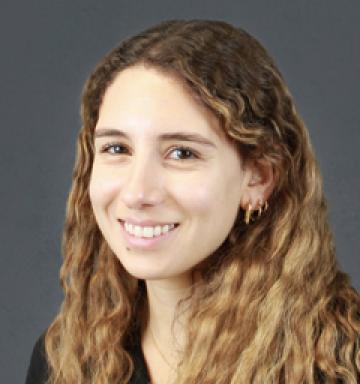
Léa Bou Sleiman is focusing on the welfare effects of transportation policies that promote efficient infrastructure utilization, such as congestion pricing in urban areas.
Long-Term Fiscal Policy
Supported by the peter g. peterson foundation.
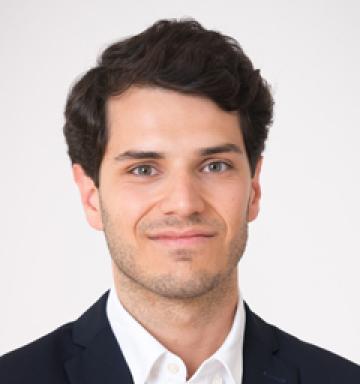
Ricardo Filipe Duque Gabriel is studying the political costs of tightening fiscal policy and pursuing austerity measures.

Patrick Kennedy is focusing on the efficiency and equity implications of major US tax policies.
Racial and Ethnic Disparities in Economic Outcomes
Supported by the alfred p. sloan foundation.

Jermaine Toney who received his PhD from the New School for Social Research and is an assistant professor (on leave for the fellowship year) at Rutgers University plans to analyze the impact of historic federal redlining and private racial restrictions in residential communities on the contemporary provision of mortgage credit.
Retirement and Disability Policy Research
Supported by the us social security administration.

Roger Prudon is examining the impact of inadequate provision of mental health treatment on later-life outcomes such as education, employment, and receipt of disability benefits.
Transportation in the 21st Century
Supported by the us department of transportation .

Adam Steven Harris is studying transportation economics, including the role of long-term relationships between shippers and carriers in the US trucking industry.
Graduate Fellows

Anthony Bald is studying the health and welfare of school-aged children and the supply of healthcare workers in historical perspective.

Theodore Caputi is studying behavioral aspects of public health, such as drug use, violence, and crime, and their effects on economic outcomes.

Woojin Kim is examining the extent of political differences in medical practice across the United States and the impact of the increasingly polarized political climate.

Steven Lee is studying behavioral factors that drive take-up of health care, including vaccines and alternative medicine.
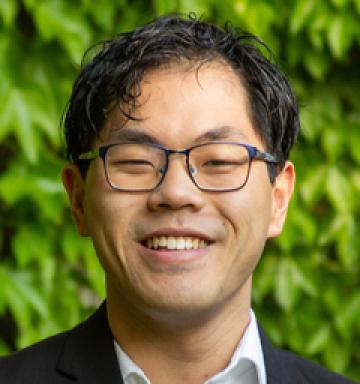
Dean Li is studying the effects of outsourcing, technological change, and consolidation on healthcare labor markets and healthcare delivery.
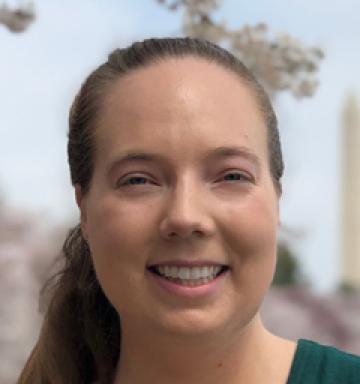
Kelsey Moran is studying the factors influencing hospital provision of charity care as well as the effects of health information exchange on patients and organizations.

Ilana Salant is studying the economics of long-term and post-acute care, with a specific focus on home-based care.
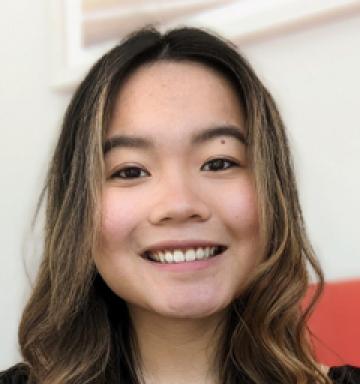
Connie Xu is researching topics at the intersection of labor and health economics, with a focus on innovation, the healthcare and life sciences workforce, and the economics of science.
Behavioral Macroeconomics

Michael Cai is developing a semi-structural approach to estimating macroeconomic models, which accommodates wide classes of non-rational expectations.

Mateo Velásquez-Giraldo is studying how survey measures of macroeconomic beliefs can help explain life-cycle consumption and portfolio decisions.

Matteo Saccarola is doing research on belief formation over inflation, exchange rates, and prices, using a combination of survey experiments and applied microeconomics.
Consumer Financial Management
Supported by the institute of consumer money management.

Benedict Guttman-Kenney is researching how technological innovation unraveled US credit card information sharing.

Jing Xian Ng is using lenders’ requirements that borrowers purchase private mortgage insurance to study the determinants of household consumption and saving behavior.

Charlie Rafkin is researching the effects and design of transfer programs for low-income households, with a particular focus on assistance for households facing eviction.
Gender in the Economy
Supported by the bill and melinda gates foundation.

Savannah Noray is studying the determinants of female labor supply and women's occupation choices.
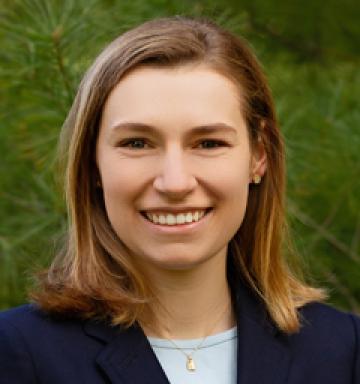
Lindsey Uniat is studying the macroeconomic implications of changes in female labor force participation in the United States during the latter half of the twentieth century, with an emphasis on technology adoption.

Akanksha Vardani is studying how providing home coownership to women in India impacts their empowerment.

Marai Hayes is studying the effects of childhood health on later-life earnings and retirement wealth as well as the interaction between childhood health and racial disparities in wealth.

Johnny Huynh is studying the impact of disability compensation on military veterans’ well-being.
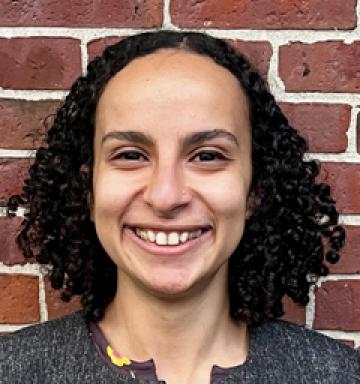
Sarah Kotb is studying the design of public health insurance programs and its effects on welfare and public spending.

Cesia Sanchez is investigating how economic shocks experienced by early-career workers affect the retirement decisions of their parents.

May 2, 2024
Apply for the Future of Higher Education Postdoc Program
By Lisa García Bedolla
The UC Berkeley Future of Higher Education (FHE) Postdoctoral Fellowship Program seeks applications for a two-year Postdoctoral Fellowship program from scholars in any discipline with a Ph.D. from the University of California, Berkeley who have interest in a career in higher education administration.
This postdoctoral fellowship is reserved for scholars who earned or will earn their Ph.D. in recent years. To apply, a candidate must have completed all requirements for their doctoral degree by August 31, 2024. Fellows are expected to be in Berkeley for the duration of the postdoc.
The program provides two tracks for applicants: the Leadership and Strategic Initiatives Track and the Student Experience Track.
In keeping with the campus postdoc salary scale, the salary for this postdoc will be $64,480 plus benefits including a $2000 professional development fund
How to Apply
Read more about this postdoc and start your application .
If you have any questions about this postdoctoral fellowship, please email [email protected] .
- Tel: +44 (0)23 9431 1545
- WhatsApp: +44 (0)7360 544 612
- Email: [email protected]
- Upcoming events
.png?width=180&height=222&name=UoP_Study%20Online_Stacked%20(1).png)
- Student experience
- Student support services
- Testimonials
- MSc Cyber Security and Digital Forensics
- MSc Data Analytics
- MSc Global Human Resource Management
- MSc Project Management for Construction
- MSc Psychology
- MSc Risk, Crisis and Resilience Management
- Global Professional Doctorate in Business Administration (DBA)
- Teaching team
- Course costs
- Funding options
- What’s the difference between a PhD and a doctorate?
25 Aug 2022
- How you'll learn
In this post, we’ll explore the definitions, differences and similarities of PhDs and doctorates, as well as what a Doctorate in Business Administration (DBA) entails.
After completing a master’s degree and spending time building a career, many professionals consider continuing their education and pursuing a higher level of academic achievement.
Two of the most common options are a PhD or a doctorate, but what is the difference between the two?
Defining a PhD and a doctorate
A PhD, or Doctor of Philosophy, is a specific type of doctorate degree that focuses on research in a particular field. It is highly theoretical and involves extensive research to generate new knowledge.
On the other hand, a doctorate degree is an umbrella term for any doctoral-level degree. It can be further categorised into two types: academic and professional.
Academic doctorates, such as a PhD, are focused on research, while professional doctorates, like the Doctorate in Business Administration (DBA) , focus on practical application in professional settings.
Want to know more about the benefits of a DBA? Explore our guide:

Differences between a PhD and a doctorate
While both a PhD and a doctorate are doctoral-level degrees, there are some key differences between the two. One of the main differences is that a PhD is typically an academic degree, while a doctorate can be either academic or professional. Additionally, a PhD is highly theoretical and research-focused, while a professional doctorate is practical and geared toward applying research to specific professional settings.
Similarities between a PhD and a doctorate
Despite their differences, there are also some similarities between a PhD and a doctorate. Both degrees require significant research, critical thinking, and independent study. They are both highly respected and recognised as top-level degrees in their respective fields, and both confer the title of “Doctor” upon completion.
Weighing up your options? Read our guide to the benefits and drawbacks:

Examples of professional doctorates
Examples of professional doctorates include the Doctorate in Business Administration (DBA), Doctorate of Education (EdD), Doctorate of Nursing Practice (DNP), and Doctorate of Psychology (PsyD), among others. These degrees are typically designed for individuals who want to apply research to specific professional settings.
What is a Doctorate in Business Administration (DBA)?
A DBA is a professional doctorate degree that is focused on applying research to real-world business problems. It is typically designed for individuals who are in senior-level or executive positions in private or public sector organisations. A DBA is often seen as a practical alternative to a PhD in business, as it allows professionals to apply research directly to their work .
Benefits of pursuing a Global DBA
Portsmouth Online offers a Global DBA that is online and part-time, making it accessible from anywhere in the world. This course is specifically designed for senior-level professionals who want to become more qualified in the field of business.
The structured modules will help you develop your ability to challenge current thinking and provide authoritative solutions to practical and research problems. Additionally, the applied research in the DBA thesis will allow you to conduct research on a topic that is directly relevant to your organisation.
Choosing between a PhD and a doctorate
Choosing between a PhD and a doctorate depends on your goals and aspirations. If you are interested in academic research and generating new knowledge, a PhD may be the right path for you.
However, if you want to apply research to specific professional settings, a professional doctorate like a DBA may be a better fit. Ultimately, it is important to choose the degree that aligns with your career goals and interests.
Get more guidance on whether a PhD or a doctorate is right for you:

Recent Posts
Women in the construction industry: how to get ahead.
Learn about the challenges women working in construction face, and the key strategies women can implement to advance their career in this existing ...

Your guide to construction law
Whether you're exploring construction law courses and careers, or are simply curious about what construction law entails and its impact on the ...

What skills does a data analyst need
Whether you’re looking at Data Analyst jobs and want to improve your skillset, or you’re simply intrigued as to the attributes people need to become ...

You’ve got the potential for success. Now’s the time for action.
Got a question about our courses? Complete the form below and a member of our course adviser team will contact you shortly.
Quick links
- Online courses
- Fees and funding
- Application process
- Complaints policy
University links
- MAIN UNIVERSITY WEBSITE
- STUDENT WEBSITE
- VIEW ALL courses
- WhatsApp: +44 (0) 7360 544 612
© 2022 UNIVERSITY OF PORTSMOUTH COOKIES ACCESSIBILITY MODERN SLAVERY PRIVACY WEBSITE TERMS & CONDITIONS
Tips for Grads: Strategies to navigate a graduate program effectively
By Foram Gathia, PhD student
“The Deliberate Doctorate” by Leela Viswanathan offers practical insights and strategies that can significantly enhance the daily life of a graduate student, master’s or doctoral. Here’s how:
- Evaluate your values : The focus of this book is to evaluate individual values of graduate students and why a graduate degree matters to them. This will help them keep going when things get challenging.
- Pick a research focus : Choosing the right research topic is essential. Students can avoid wasting time on irrelevant topics and focus their energy on meaningful research and select a suitable topic aligned with their interests and career goals.
- Learn stress management : Graduate school can be stressful, but strategies for managing stress and staying motivated throughout the dissertation process are necessary. This includes techniques for maintaining work-life balance, dealing with setbacks, and seeking support when needed.
- Develop writing and presentation skills : Writing a dissertation and presenting research findings are crucial aspects of graduate studies. Skills such as improving writing proficiency, structuring arguments effectively, delivering compelling presentations, and empowering students to communicate their research with clarity and confidence are vital for success.
- Cultivate advising relationships : Building strong relationships with advisors and mentors is essential for success in graduate school. It is important to cultivate these relationships, communicate effectively with advisors, and seek guidance when facing challenges.
Marie Skłodowska-Curie Actions
Msca opens €417 million call for postdoctoral fellowships.
Postdoctoral Fellowships offer researchers holding a PhD the opportunity to gain new skills and experience while carrying out their own research project abroad. The deadline to apply is 11 September 2024.
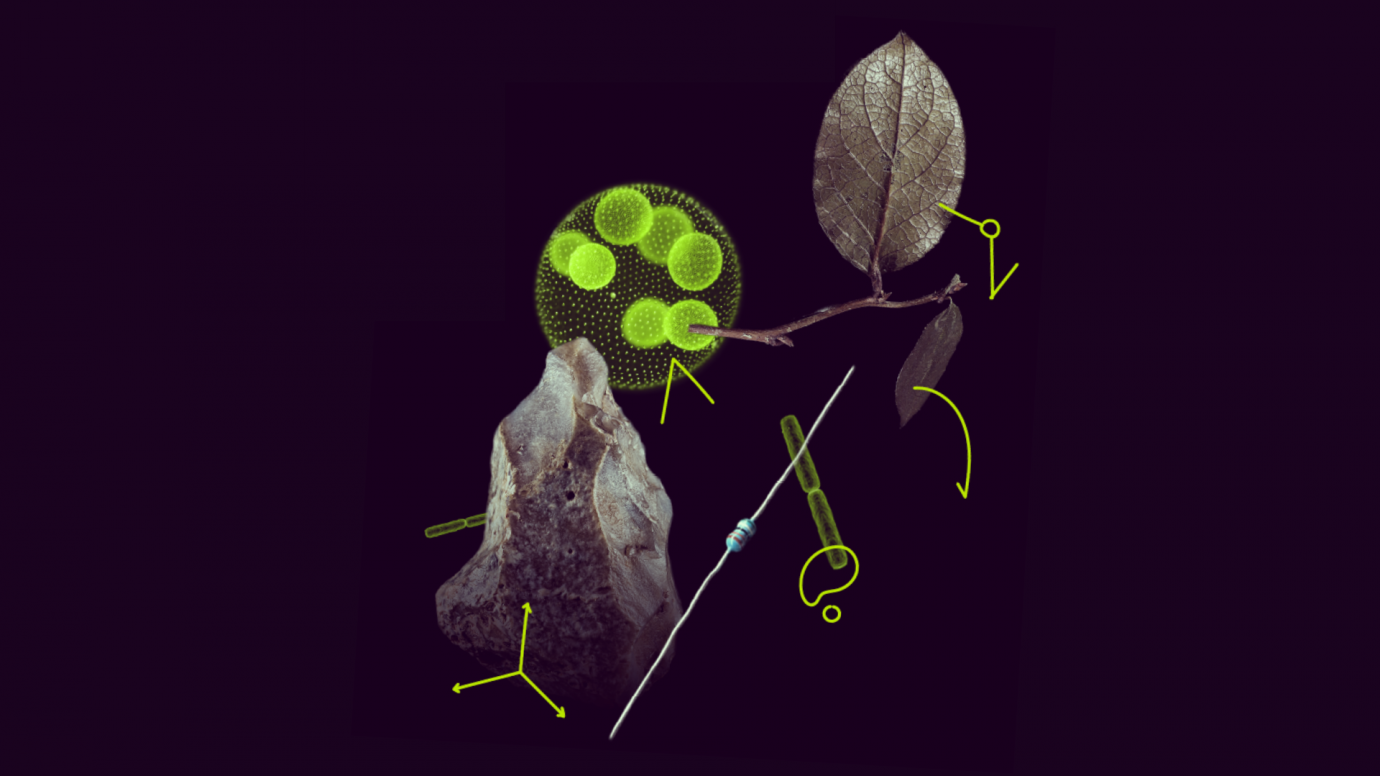
The 2024 call for the Marie Sklodowska-Curie Actions Postdoctoral Fellowships is open as of today.
The grants, which have a budget of € 417.18 million, aim to improve the creative and innovative potential of researchers holding a PhD.
They will help researchers acquire new skills,develop their careers, and gain international, interdisciplinary, and inter-sectoral experience by working in another country.
These prestigious fellowships are also a stepping stone in researchers’ careers. They allow them to strengthen research cooperation with leading scientific teams and figures worldwide.
The call will close on 11 September 2024 and is expected to fund over 1,400 projects.
Research in all fields
The call is open to applications in any scientific field, including Euratom research.
Fellowships include
- European Postdoctoral Fellowships , open to researchers of any nationality to carry out a personalised project in the European Union (EU) or countries associated to Horizon Europe for up to 24 months
- Global Postdoctoral Fellowships , open to EU and Horizon Europe associated countries nationals or long-term residents wishing to work with organisations in third countries for a period of 12 to 24 months, before returning to Europe for 12 months
The scheme encourages researchers to gain experience beyond academia by giving them the opportunity to request an additional six months at the end of their fellowship to undertake a placement in a non-academic organisation in Europe.
Conditions for researchers and organisations
MSCA Postdoctoral Fellowships are open to postdoctoral researchers from all over the world, of any nationality and at any career stage, with a maximum of 8 years of research experience after their PhD.
Some exceptions and specific conditions apply, for instance for Global Postdoctoral Fellowships.
Researchers must develop an application with their prospective supervisor and apply together with their future host organisation, which can be
- a university
- a research institution or facility
- a company, small or medium-sized enterprise
- a government, public institution, or body
- a museum, hospital, or NGO
- any other organisation
based in an EU Member State or Horizon Europe associated country .
As of January 2024, the United Kingdom is associated to the Horizon Europe programme. United Kingdom organisations will therefore be able to apply and receive funding under this year’s call under the same conditions as EU Member States and other countries associated to Horizon Europe.
In addition, researchers applying to Global Fellowships will need to seek the commitment of an organisation based in a third country , as they will carry out their research there for a period of between 12 and 24 months.
The call is open to researchers wishing to reintegrate in Europe, to those who are displaced by conflict, as well as to researchers with high potential who are seeking to restart their careers.
ERA Fellowships
Researchers applying for a standard European Fellowship with a host organisation in a “widening country” (i.e. a country with lower participation rates in Horizon Europe) can opt in to be considered for the ERA Fellowships call.
Around 50 ERA Fellowships will be awarded to excellent applicants who were not selected under the MSCA Postdoctoral Fellowships call due to budget constraints. The eligible host countries for ERA Fellowships can be found in the following list .
Indicative timeline
23 April 2024: launch of the call for proposals
11 September 2024: deadline to submit proposals
February 2025: notification of call results to applicants (TBC)
March-May 2025: grant agreement signature for successful projects (TBC)
April-May 2025: first EU-funded projects start (TBC)
Find out more and apply
Have a look at our tips and tricks to prepare your application
Thanks for your feedback
We are happy to see that your experience was positive. Don't forget to share the pages you like with your friends and colleagues.
If you need to ask a question, please contact Europe direct .

IMAGES
VIDEO
COMMENTS
A postdoctoral fellow, postdoctoral researcher, or simply postdoc, is a person professionally conducting research after the completion of their doctoral studies (typically a PhD).Postdocs most commonly, but not always, have a temporary academic appointment, sometimes in preparation for an academic faculty position. According to data from the US National Science Foundation, the number of ...
The first and foremost difference between the two is that a PhD is "awarded" after defending a thesis (plus additional duties depending on the department). On the other hand, a PostDoc is a temporary working position that is assigned by some institution, whose completion does not require any defence. What people do or do not do, researchwise ...
A postdoc is a temporary funded research position at a university or in industry taken on within a few years of completing a PhD. Commonly, these positions are externally funded by Research Councils, supporting individuals to work in specific institutions. Although postdoctoral researchers are considered members of staff, many will be assigned ...
Advertisement. There is a lot at stake when choosing where to do your postdoc or Ph.D. Choosing a lab that is excellent scientifically should allow you to do excellent research, publish in excellent journals, and network with other excellent researchers. At the same time, doing research is a very intense personal experience that involves ...
A postdoc is a temporary position that allows a PhD to continue their training as a researcher and gain skills and experience that will prepare them for their academic career. Most postdoc positions are at a university or in industry, but there some postdocs positions at nonprofits and in government. While the vast majority of postdocs work in ...
1. Obtain a doctoral degree. One of the most important requirements to become a postdoctoral research fellow is obtaining a doctoral degree. You can obtain a Doctor of Philosophy (Ph.D.), Doctor of Medicine (M.D.) or a Doctor of Dental Surgery (D.D.S.). A doctoral degree typically follows a master's program, which follows a bachelor's program.
A postdoc (or "post-doc," "postdoctoral," or "postdoctoral research") fellowship is a training-focused position available to people who have earned a doctorate. Postdoc positions usually act as a stepping-stone between the student experience and the full-time professional experience. For the postdoc appointee, a postdoc position offers in-depth ...
A postdoc is only one of many paths you can take after having completed your PhD. A postdoc (also referred to as a postdoc or postdoctoral) can be best thought as a temporary position designed to refine your research and teaching skills while undertaking practical research work. Because of this, most regard a postdoc position as a temporary ...
The fundamental purpose of a postdoctoral experience is to extend and deepen the postdoc's scientific and technical abilities, either in the field of the doctorate or a different field. Because postdoctoral positions seldom require administrative or teaching duties, they provide unique opportunity for researchers to demonstrate originality, creativity, and productivity that will be primary ...
Graduate students' yearly salaries will rise by $1,000, amounting to an annual salary of $28,224. The agency will also provide an extra $500 in subsidies for childcare and $200 for training ...
Brown notes that it is becoming more common for early career scientists to switch subjects between the Ph.D. and postdoc, as "it's an opportunity to jump into something that is new and fresh and exciting," he says. And having the capacity to connect seemingly disparate fields can hold other advantages. Indeed, Fazi, who recently leveraged his ...
The post-doctoral fellow is the journeyman, one who has completed training in the basic skills, but is not yet considered a master. To this end, the postdoc seeks out other masters to learn from. Since the postdoc is not an apprentice, the postdoc is given more freedom to design and implement his or her project.
Doctoral is an adjective that refers to the highest level of academic degree one can earn. Specifically, it refers to a degree that is awarded after a student has completed a program of study and research, culminating in the submission and defense of a dissertation or thesis. This degree is typically referred to as a doctorate or PhD.
16. It's not a second PhD, because the length of the postdoc is typically much shorter than that of a PhD. The function of a postdoc is sort of an "advanced apprenticeship," where you may choose your advisor (who should be different from your graduate advisor!) according to several possible goals, including: Learning a new technique or field.
A postdoc is a person who has received a doctoral degree and is pursuing additional research, training, or teaching to have better skills to pursue a career in academia, research, or other fields. Postdocs work closely with a faculty mentor. Postdocs play a crucial role in the university; they supplement the research expertise of faculty by ...
The primary difference in coursework between Ph.D. and doctorate programs primarily involves the type of assignments the students complete. Ph.D. students mainly concentrate on a curriculum that emphasizes philosophical ideas, theories and research. The coursework of a doctorate focuses on practical applications, problem-solving and innovation.
Abigail Wilpers, PhD, WHNP-BC. Yale School of Public Health Post-Doctoral Training in Cancer Prevention and Control. This multidisciplinary fellowship will train post-doctoral fellows in cancer etiology, cancer outcomes, lifestyle behavioral interventions, implementation science, and community-engaged research. Applications are due August 9, 2021.
A Ph.D. or Doctor of Philosophy, on the other hand, is a subcategory of a doctoral degree, it is much more distinct and clear-cut and is usually narrower in nature encompassing only humanities and scientific fields. In plain English, when someone says they are enrolling on a doctoral degree, it means they are doing a Ph.D. in a specific field.
Cons of Pursuing Postdoc. Despite the impressive benefits, considering the flip side of pursuing a postdoc position is imperative before taking the big decision. 1. No Tenure-track Guarantee. The uncertain career prospects in academia does not guarantee a tenure-track position even after completing your postdoc.
Annual stipend/benefits: This position provides salary and benefits consistent with NIH post-doctoral fellowships. Other benefits include pilot funds, health/dental insurance, access to JHU graduate courses, and membership to the Johns Hopkins Post-Doctoral Association. Due Dates: Deadline for submissions is June 1, 2022. Decisions will be made ...
The Runway Startup Postdocs Program is part business school, part research institution, and part startup incubator. Based at the Jacobs Technion-Cornell Institute, Runway ushers recent PhDs in digital technology fields from an academic mindset to an entrepreneurial outlook. Our PhD and Post Doctoral programs reflect the flexibility, technical ...
The NBER coordinates fellowship programs for PhD students and post doctoral researchers supported by several federal and foundation funders. Calls for most fellowships are posted in the fall, with closing dates in December. During academic year 2023-24, the NBER is providing fellowship support for graduate students studying the economics of ...
The Graduate Division serves more than 13,000 students in over 100 graduate degree programs. We are here to help you from the time you are admitted until you complete your graduate program. ... In keeping with the campus postdoc salary scale, the salary for this postdoc will be $64,480 plus benefits including a $2000 professional development ...
Find 15000+ PhD programmes and postgraduate doctorate studies Worldwide - PhDportal.com. We offer our support to Ukrainian, Russian and international students who have had their education compromised. Click here to see more information. Click here for support, scholarships & learning options for victims of conflict.
While both a PhD and a doctorate are doctoral-level degrees, there are some key differences between the two. One of the main differences is that a PhD is typically an academic degree, while a doctorate can be either academic or professional. Additionally, a PhD is highly theoretical and research-focused, while a professional doctorate is ...
By Foram Gathia, PhD student "The Deliberate Doctorate" by Leela Viswanathan offers practical insights and strategies that can significantly enhance the daily life of a graduate student, master's or doctoral. Here's how: Evaluate your values: The focus of this book is to evaluate individual values of graduate students and why a graduate degree matters to them.
Explore the best online doctoral programs in the U.S., including tuition rates, credit requirements, common courses and distance learning considerations.
Postdoctoral Researcher, Artificial Intelligence (PhD) Responsibilities: Perform research to advance the science and technology of Machine Learning, especially in the area of RecSys
April 30, 2024 · Bhushan Kharbikar, PhD, a postdoctoral fellow in the laboratories of Professors Qizhi Tang, PhD, and Tejal Desai, PhD, has been awarded a prestigious JDRF Advanced Postdoctoral Fellowship. JDRF is the leading global organization funding type 1 diabetes (T1D) research. This JDRF fellowship is designed to attract qualified and promising scientists, provide an
The 2024 call for the Marie Sklodowska-Curie Actions Postdoctoral Fellowships is open as of today.. The grants, which have a budget of € 417.18 million, aim to improve the creative and innovative potential of researchers holding a PhD.